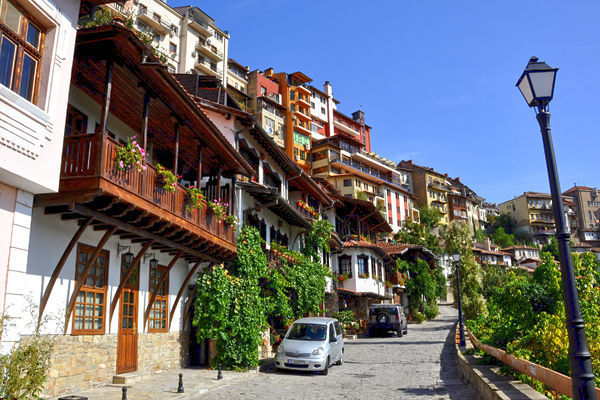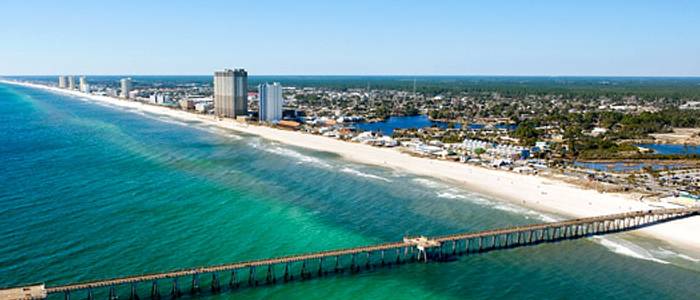Property in various offshore
Buying a property in a foreign country is what many business owners or investors often go for. It can be on your agenda if business expansion in foreign nations is something you are serious about. However, it is also important to learn nuances of buying property in various countries. The different jurisdictions have their own laws, restrictions and formalities which property buyers/investors have to fulfill. The pros and cons of buying property in any country have to be analyzed carefully.
Australia

The Australian govt has a somewhat conservative policy regarding real estate property acquisition by foreign nationals and companies. The Foreign Investment Review Board gives approval for residential real estate acquisition by foreign nationals or corporations. The foreign nationals with Australian spouse posing as joint tenant or those with “special category” visas can skip scrutiny by FIRB.
The govt encourages foreign investment in regions that may enhance housing stock. So, potential buyers should not sign any contract prior to getting FIRB nod for property acquisition in Australia. As per the reformed law, non-resident buyers may buy new properties but not established ones.
Australian Government has made some recent chances in their real estate acquisition laws making it difficult for foreign investors to buy acres of lands. The Australian real estate industry was abuzz with the rumor that foreign Chinese investors are dumping their money into the sector and thereby driving up the property price. To alleviate the fears of the local property buyers, Australian government has imposed a series of restrictions.
The new regulation forbids foreign investors to buy existing property in Australia. Under this new law, foreign investors will only be allowed to purchase new properties. All property related transactions should be brought to the notice of Foreign Investment Review Board (FIRB). Non-residents buying property inAustralia sans FIRB approval may have to pay penalty worth $135,000 along with three years’ imprisonment.
Companies breaching these rules have to pay steeper fines too. Besides, foreigners buying an Australian investment property have to churn out an application fee. However, this fee does not guarantee the acquisition. The foreign origin property buyers in Australia also face home loan related hurdles. The banks like Commonwealth Bank, Westpac and NAB have narrowed lending prospects for foreign investors.
England

People hailing from other countries can buy properties in the UK. It is easier for those buying properties in cash than those taking loans. The difficulty is most of the UK banks have reduced offering investment loans in recent years. Those living abroad and willing to buy property in the UK will require income proof and a deposit of 40 percent of the property cost may have to be paid. Mortgage rates tend to vary and the yep of mortgage also affects the final rate. It is better to learn your tax implications in this regard before applying for loans. You have to think of any hidden cost too. Veteran Solicitors can enlighten the buyers on this and they can seek services of expert property acquisition consultant firms too.
- Individual Ownership
One of the simplest and fastest ways to purchase a property is by getting the property registered in the name of an individual. Individual property ownership gives nonresidents huge tax benefits. You don’t have to pay much for stamp duty land tax or Annual Tax on Enveloped Dwellings which is a huge plus point. You can even get some tax relief by labelling the property as your principal private residence (PPR).
- Trust / Nominee Ownership
If you want to purchase a property in the name of a trust, you will have to shell out at least 14% CGT charge. By meeting the necessary resident criteria, your trust might be able to get some PPR relief. To get eligible for PPR relief, you need to get the property registered under a trust’s name rather than in the name of a company. Standard residential rate will be applied on property acquisition and ATED will not be applied too.
Bulgaria

The law in Bulgaria enables foreign nationals to acquire properties in the country without much hassle. However, they may face certain limitations in the process. Since 2014, foreign nationals are eligible to buy buildings but they do not get ownership of the land. They cannot buy vineyards, agricultural land etc. The previous restrictions and conditions pertaining to property buying no longer exist. You need not be a resident of Bulgaria to buy a property. To buy the land, you have to register with a company registered in the country. However, the EU residents are now exempted from this rule. The property tax is same for Bulgarian residents and buyers from other countries.
Steps to buy property in Bulgaria
- Once you have selected the property or the land in Bulgaria, you will have to pay a deposit of 2,000 EUR. Only after you make the deposit, the property will be listed as reserve and it will be automatically delisted from property listing sites.
- Within the next 30 days, an agreement is signed between the owner and the seller. The agreement consists of some basic details pertaining to the property and the conditions that are laid out in this initial agreement will be copied verbatim in the Notary Deed. The following details are usually included in this Preliminary Agreement – off-plan properties, terms of payment, price, conditions, property description, finishing details of the property etc.
- Go through the Notary Deed carefully because it is considered by the Bulgarian authority as a legal property ownership certificate. In the presence of the seller and the buyer, the Notary Deed gets drawn up by the local notary public.
- In the next stage, the Deed gets registered by the Registry Agency and it also gets certified by the Notary Public.
Hungary

The law in Hungary for real estate property acquisition by foreigners is not stringent. Literally, people from any country can buy real estate in Hungary. However, foreigners cannot purchase any agricultural property. They are allowed to buy properties located in urban areas. While a foreigner requires a permit for such property buying, it is not costly or complicated. However, the EU citizens can bypass these limitations in near future. The non-EU citizens can get residency if they pay $356,000 on any property in the country. They also have to live in Hungary for 8 years for this.
Emirates (Dubai)

Buying real estate in Dubai is quite uncomplicated. After implementation of Freehold Law in 2002, foreigners can buy, rent and sell properties in Dubai minus complex regulations or permissions. The foreign origin buyers have to pay 25% deposit when buying the properties. The simplified tax system of Dubai is a big reason foreign investors choose it over other place in the UAE. There is nothing beyond land registry tax and renting the property is not taxable either. Foreign nationals can buy 3 types of properties- freehold property, usufruct property and common hold property. The good thing is foreign buyers get 3 years residence permit.
Types of Properties
- Freehold properties– Foreigners who are looking for investment opportunity in the Dubai prefer this type of property. Freehold properties are easier to acquire and they involve fewer paper works and thus they are a popular choice among foreign investors. You can sell or rent these properties without needing any prior permissions. Freehold properties are mostly undeveloped land parcels. So, you might have to spend a considerable amount of money to develop that property.
- Usufruct properties– Usufruct properties are a popular alternative of freehold properties. The very term – “Usufruct” means long-term lease. These properties are extremely flexible in nature and you can make whatever changes you want in them. The property can be on lease for 10 to 100 years. You can purchase both residential or commercial properties under this property act.
- Commonhold properties– Commonhold properties are just like freehold properties with the only difference is that these commonhold properties are fully developed properties with modern amenities included. The major drawback of commonhold properties is that you will have to pay a certain amount for monthly maintenance of the common areas and the properties.
Luxembourg

Foreigners do not face restrictions in buying Luxembourg real estate but they have to be aware of the property transaction fees or other applicable taxes. If you sell the property within two years of buying, the capital gains tax comes into picture. This is reduced by half if you sell the property after 2 years. Foreign origin homebuyers in Luxembourg can seek various loans and finance options and the options are growing with time.
Mauritius

Of late, property buying in Mauritius has become simpler and less expensive proposition for the foreign nationals. The Government has unveiled programs that enable foreign nationals to buy residential properties through investment schemes. One such example is the PRS- Permanent Residence Scheme. To get permanent residency a foreigner needs to pay US$500,000 in approved business activities. The buyer gets a 5,276 sq. m land for residential purposes. There are schemes like IRS and RES too. You can invest without getting citizenship in Mauritius too.
Panama

Buying real estate in excess of 300 thousand. Dollars allows a non-resident to issue so-called “passport investor”. This passport gives the right to visa-free movement in Panama, and the US and the EU.
Switzerland

Compared to many other countries in Europe, buying property in Switzerland can be a tad difficult for the foreign nationals. You can buy a property in the country if you are an EFTA or EU citizen. Those with Swiss C permit can also buy property. People in these categories can buy investment properties, holiday home and business premises- much like Swiss citizens.
Swiss B Permit holders can also buy properties but only for living. Those who fall outside such categories and non-resident foreigners, foreign residents sans Swiss work permit- cannot buy property directly. They have to apply for license. Renting is what most foreigners go for. Many people also live in neighboring countries like Germany and France and work in Switzerland.
To buy property in a foreign country for business or other needs, services of consultancy firms can be handy. BRIS group can aid you in learning more on buying real estate in various countries. Contact us for details on this including tax, govt rules and eligibility etc.
*******

Property in various offshore
Related pages: Offshore


